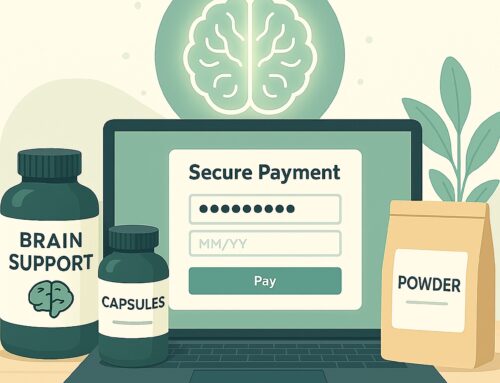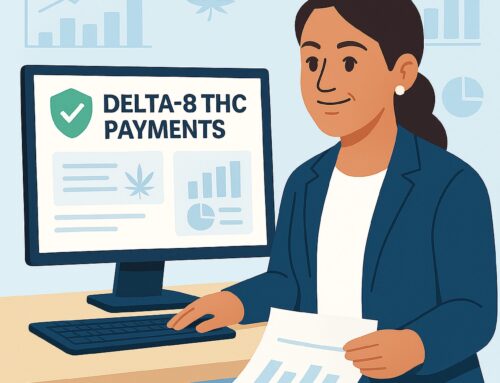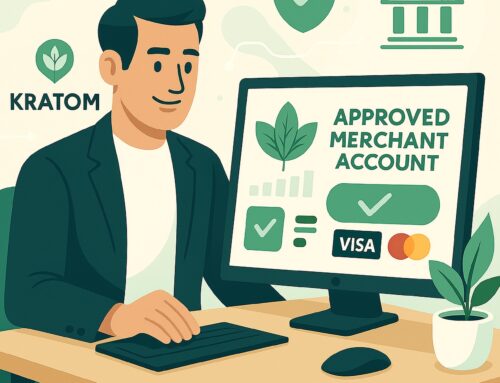Key Highlights
- Credit card payment processing involves multiple participants: cardholder, merchant, issuing bank, acquiring bank, and card networks.
- The process has two main steps: authorization and settlement.
- Merchants need hardware and software, such as card readers and payment apps, to capture and transmit card information.
- Credit card processing fees can range from 1.5% to 3.5% of the transaction.
- Understanding credit card processing basics helps merchants choose the right payment processor and avoid unnecessary fees.
Introduction
Credit card payment processing is essential in modern commerce. Cash was once king, but now credit rules. Whether you’re a small business owner or a consumer, understanding credit card processing helps navigate payments effectively. This beginner’s guide explores key components, players, and steps involved in authorizing and settling a transaction. For any questions, you can easily contact us via email.
Understanding Credit Card Payment Processing
Credit card payment processing involves various participants and steps, but the main needs for a merchant are good rates and a trusted agent. At VERIFIED Credit Card Processing, we work with trusted providers to get you the best rates and are always available by phone call, text, or email.
A transaction begins when a customer presents their card for payment at a merchant’s point of sale, either in person or online. The merchant transmits the card information to their acquiring bank or credit card processor. The acquiring bank routes the information to the appropriate card network, which forwards it to the issuing bank for authorization. The issuing bank checks the cardholder’s account status and available credit before approving or denying the transaction.
Authorization and Settlement
Authorization: The cardholder’s bank verifies that the card is valid and has sufficient funds. The merchant sends transaction details to the payment processor, who forwards them to the card network. The network contacts the issuing bank for authorization. Once approved, the merchant receives an authorization code, and the transaction can proceed.
Settlement: After authorization, funds transfer from the cardholder’s bank to the merchant’s bank. The acquiring bank collects transaction details and sends them to the card network, which routes them to the issuing bank. The issuing bank debits the cardholder’s account and transfers funds to the acquiring bank, which then credits the merchant’s account.
The Role of Merchants and Consumers
Merchants play a crucial role in accepting payments from customers. They maintain merchant accounts with acquiring banks, enabling them to accept credit card payments. Business owners are considered merchants, relying on acquiring banks to handle transactions, provide equipment and software, and deposit funds from sales. Consumers use credit cards to make purchases.
Even if you are a service provider or contractor, if you get paid, you are a merchant. At VERIFIED Credit Card Processing, we help all types of merchants get paid. This process sounds complicated, but once you apply through our site, we get you the best rates. All you need is a bank account.
Key Terms and Definitions
- Issuing Bank: The bank that issued the credit card to the cardholder.
- Payment Processor: Handles the transaction process between the merchant and the issuing bank.
- Acquiring Bank: Provides merchant accounts to businesses to accept credit card payments.
- Card Information: Includes the cardholder’s name, card number, expiration date, and CVV code, necessary for authorization and settlement.
- Terminal/POS: Hardware used to process a payment in person.
- Virtual Terminal: An online tool for manually entering credit card details for transactions.
- Gateway: Software allowing merchants to securely capture and transmit credit card information for online transactions.
The Players in Credit Card Processing
Various entities play roles in credit card processing:
- Merchant Account Providers: Financial institutions or payment service providers offering merchant accounts to businesses.
- Payment Service Providers: Companies offering payment processing services to merchants, including hardware and software.
- Credit Card Networks: Organizations like Visa, Mastercard, and American Express facilitating transaction data transmission between merchants, payment processors, and issuing banks.
Merchant Account Providers vs. Payment Service Providers
Merchant account providers (acquiring banks) offer merchant accounts to accept credit card payments and handle settlement of funds into the merchant’s account. Payment service providers offer services beyond the merchant account, including hardware, software, inventory management, and reporting. Small businesses can choose based on their needs.
Acquiring Banks and Issuing Banks
Acquiring banks and issuing banks are integral to credit card processing. Acquiring banks work with merchants to accept payments, handle settlement, and provide tools and services. Issuing banks issue credit cards to consumers and authorize or decline transactions. Both collaborate to facilitate secure transactions.
Credit Card Networks: Visa, MasterCard, and Others
Credit card networks act as intermediaries between merchants, acquiring banks, and issuing banks. They provide infrastructure and rules for transaction data transmission. Visa and Mastercard are well-known networks, but others like American Express and Discover also exist. Each network has its own rules, interchange fees, and qualification guidelines for merchants.
Getting Started with Credit Card Processing
Small business owners need key components to accept credit card payments:
- Payment Gateway: Software to securely capture and transmit credit card information.
- Credit Card Machine: Hardware device for swiping or inserting credit cards.
- Online Store Integration: Integrating a payment gateway with their online store to accept payments.
What You Need: Equipment and Software
Businesses need the right equipment and software to accept credit card payments:
- Payment Methods: Offer a variety of payment methods, including credit cards, debit cards, and mobile wallets.
- Credit Card Information: Securely capture and transmit card information using hardware or software.
- Online Store Integration: Secure payment gateway integrated with their online store.
Choosing the Right Payment Processor for Your Business
Choosing the right payment processor is crucial. Consider these factors:
- Capabilities: Ensure the payment processor offers the hardware, software, and services needed.
- Pricing and Fees: Compare pricing models, transaction fees, and additional charges. Watch for hidden fees.
- Customer Experience: Look for reliable customer support and a user-friendly interface.
At VERIFIED Credit Card Processing, we offer competitive rates, transparency, and exceptional customer support to ensure your business’s success.
Step-by-Step Guide to Setting Up Credit Card Processing
Step 1: Selecting a Payment Gateway
Choose a payment gateway based on features, security, and compatibility with your website or POS system. Provide business details and bank account information to create an account.
Step 2: Integrating with Your Online Store or Physical Terminal
Integrate the payment gateway with your online store or physical terminal. For online stores, install a plugin or add necessary code. Connect physical terminals to the payment gateway using provided instructions. Start accepting credit card payments.
Step 3: Understanding and Negotiating Fees
Understand and negotiate fees. Processing fees cover transaction management costs, and interchange fees are paid to the issuing bank. Some processors charge monthly fees. Understanding these fees and negotiating can lower overall costs.
Step 4: Compliance and Security Measures
Adhere to industry standards like PCI DSS for securely handling cardholder data. Implement robust security measures, such as secure payment gateways and card readers. Compliance and security build trust with customers and protect cardholder information from threats.
Fee Structures Explained
Understanding fee structures is essential for managing costs. Key fees include:
- Interchange Fees: Set by card networks and paid to the issuing bank for each transaction. Vary by transaction amount, card type, and merchant industry.
- Processing Fees: Charged by payment processors, covering transaction management costs. Typically a percentage of each transaction amount.
- Assessment Fees: Paid to card networks for their services. Typically a small percentage of the transaction amount.
- Hidden Fees: Additional charges not explicitly disclosed, including monthly fees, statement fees, and fees for additional services.
Hidden Fees to Watch Out For
Hidden fees can impact overall processing costs. These may include monthly fees, statement fees, annual fees, and fees for additional services like chargeback handling or PCI compliance. Carefully review agreements and ask about potential hidden fees before signing up for services. Understanding the full cost structure and proactively negotiating can help manage expenses effectively.
Dual Pricing and Its Benefits for Merchants
What is Dual Pricing?
Dual pricing offers different transaction rates for low-risk and high-risk merchants. Low-risk merchants typically have lower fees due to lower risk of chargebacks or fraud. High-risk merchants may face higher fees due to increased risk but can still benefit from competitive rates.
How Dual Pricing Can Save Money for All Merchants
Dual pricing is not just for high-risk merchants. It allows merchants to offer different prices for cash and credit card payments, helping them manage processing costs. By encouraging cash payments, merchants can avoid credit card processing fees altogether. This pricing model provides transparency and can attract cost-conscious customers, benefiting all types of merchants. Proper signage and clear pricing are crucial for compliance, ensuring customers are aware of the different prices and fostering trust. For more information on the advantages and compliance of dual pricing, you can refer to this article.
Mobile Payment Solutions
With advancements in technology, merchants can now use mobile phone apps to settle payments. Mobile payment solutions provide flexibility and convenience, allowing businesses to accept payments anywhere. These solutions can involve:
- Mobile Card Readers: Attachments that connect to smartphones or tablets to swipe or insert credit cards.
- Tap-to-Pay Options: Mobile apps enabling contactless payments, allowing customers to tap their cards or phones to complete transactions.
Using mobile payment solutions, merchants can offer more payment options to customers and improve the overall payment experience.
Conclusion
Understanding credit card payment processing is essential for both merchants and consumers. This guide covers the key aspects, from the roles of acquiring banks to the intricacies of credit card networks like Visa and MasterCard. Choosing the right payment processor and navigating fee structures can significantly impact your business’s bottom line. By following a step-by-step setup guide and being aware of hidden fees, you can streamline your credit card processing operations. Dual pricing offers benefits, especially for high-risk merchants, and can save money for all merchants. Mobile payment solutions add flexibility, allowing merchants to accept payments anywhere, enhancing the overall payment experience. Stay informed about compliance, security measures, and payment acceptance to ensure smooth transactions and financial success.
Frequently Asked Questions
1. What types of businesses do you support?
We support all types of businesses, including low, medium, and high-risk merchants, such as retail stores, professional services, online gaming, adult entertainment, high-ticket e-commerce, CBD, and cannabis businesses.
2. How can VERIFIED Credit Card Processing help cannabis businesses?
VERIFIED Credit Card Processing specializes in providing payment processing solutions for high-risk industries like cannabis. We leverage our partnerships with multiple underwriters to ensure approval and competitive rates for cannabis businesses.
3. What is your best rate guarantee?
If you provide us with your current payment processing statement, we will compare and beat your existing rates, ensuring you get the best deal possible.
4. What types of payment solutions do you offer?
We offer a wide range of solutions including credit and debit card processing, e-commerce gateways, mobile and wireless payments, point-of-sale systems, and gift and loyalty programs.
5. How do you ensure the security of credit card transactions?
We partner with industry leaders like Coastal Pay, Beacon Payments, GoPayBright, and PayWavez to provide advanced fraud protection and secure payment gateways, ensuring your transactions are safe and secure.
6. What is the process for getting started with VERIFIED Credit Card Processing?
You can start by providing your business information through our website. We will then get your application to our underwriters who will recommend the best solutions for your business needs.
7. Do you offer support for high-risk merchants?
Yes, we specialize in high-risk merchant services and have partnerships with multiple underwriters to secure the best rates and ensure approval even if one acquirer rejects your application.
8. Can VERIFIED Credit Card Processing integrate with my existing systems?
Yes, we offer integrations with over 2000 POS systems and can work with popular software solutions like Authorize.net and QuickBooks to ensure seamless payment processing.
9. What kind of customer support does VERIFIED Credit Card Processing offer?
We provide 24/7 customer support to assist with any needs or issues that may arise, ensuring that your payment processing runs smoothly at all times.
10. Why should I choose VERIFIED Credit Card Processing over other payment processors?
VERIFIED Credit Card Processing offers competitive rates, a best rate guarantee, comprehensive solutions for all risk levels, and exceptional customer support. Our partnerships with Coastal Pay, PayWavez, and PayCompass enable us to provide reliable, top-tier payment processing services tailored to your business needs.
11. What is credit card processing?
Credit card processing is the series of steps that occur from the moment a customer swipes, dips, or enters their credit card information until the funds are deposited into the merchant’s account. This involves several key players, including the cardholder, the merchant, the payment processor, the card issuer, and the card network. The entire credit card transaction process ensures the security and authorization of the transaction.
12. How does a credit card transaction process work?
The credit card transaction process starts when a customer initiates a payment. The card reader sends the credit card information to the payment gateway, which then forwards it to the processing system. The processor submits the data to the respective card network (such as Visa or MasterCard), which communicates with the card issuer to approve or decline the transaction. If approved, the transaction is completed, and the funds are eventually deposited into the merchant’s account.
13. What types of fees are associated with credit card processing?
Credit card processing fees can include a variety of charges such as interchange fees, processing fees, monthly fees, and transaction fees. The interchange fee is the percentage of the transaction that must be paid to the card issuer and card network. The processing fee is a charge from the payment processor for handling the transaction. Additional charges may include setup fees, monthly fees, and fees for various other services.
14. What is a merchant account?
A merchant account is a specific type of bank account that allows businesses to accept credit and debit card payments. Funds from credit card transactions are temporarily held in the merchant account before being transferred to the business’s primary bank account. This type of account is essential for any small business aiming to succeed.
15. How does dual pricing help merchants avoid fees?
Dual pricing allows merchants to offer different prices for cash and credit card payments. By encouraging cash payments, merchants can avoid credit card processing fees. This pricing model provides transparency and can attract cost-conscious customers, benefiting all types of merchants. Proper signage and clear pricing are crucial for compliance, ensuring customers are aware of the different prices and fostering trust. For more information on the advantages and compliance of dual pricing, you can refer to this article.
16. What are mobile payment solutions?
Mobile payment solutions allow merchants to accept payments using mobile devices such as smartphones or tablets. These solutions include mobile card readers and tap-to-pay options, providing flexibility and convenience for businesses to accept payments anywhere.
Continue Reading
Let us discover your best options.
Either submit the form below or get in touch with an agent now (415) 835-4135.
Applying is risk-free; we send your details to underwriters to find the best fit and contact you with the best option or request more details, with no credit checks or commitments.












